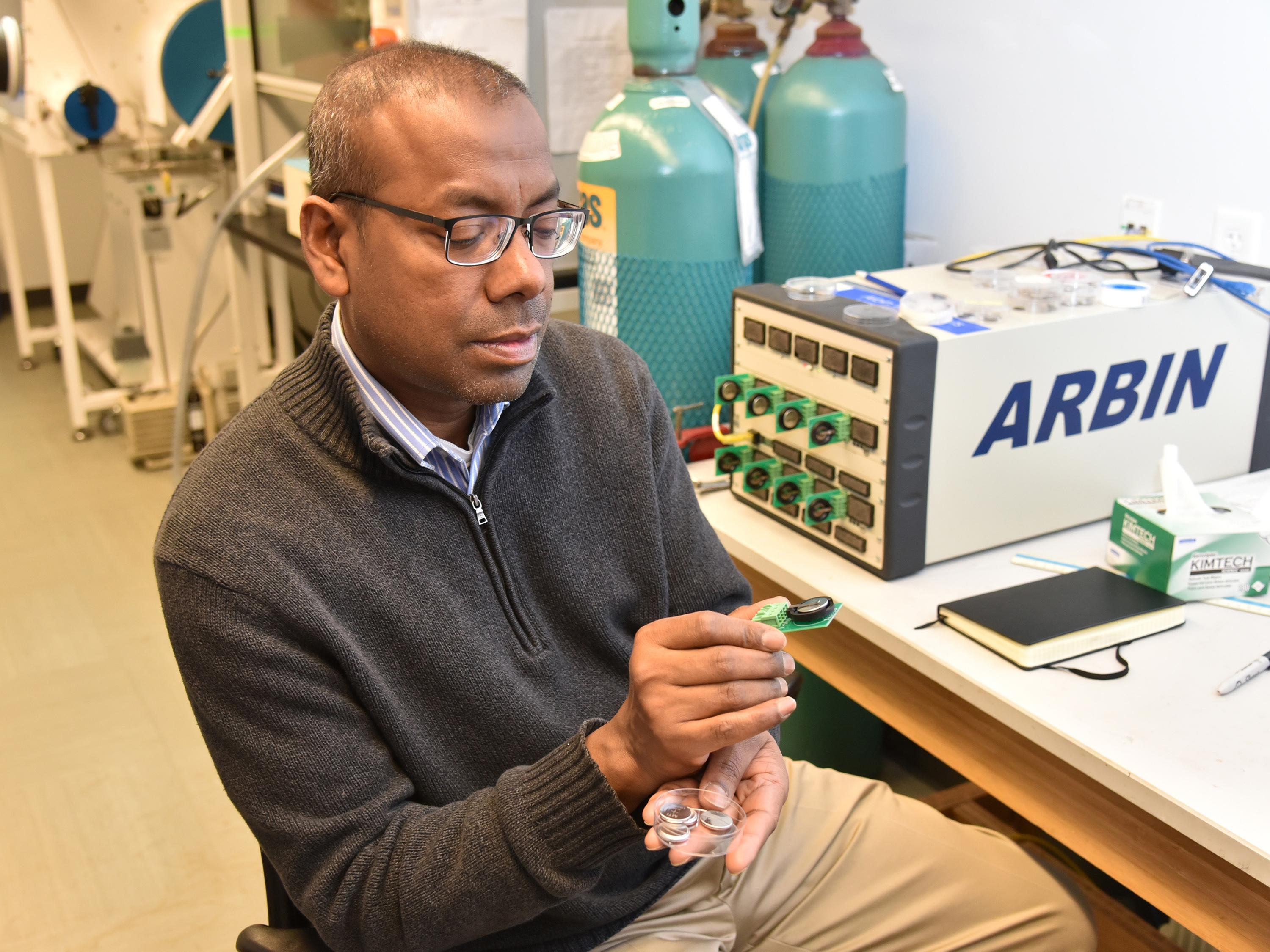Sodium solution -- In this file photo, SUNY Oswego physics faculty member Mohammad Islam shows off sodium ion batteries in a Shineman Center physics lab. Islam was named a Syracuse CoE (Center of Excellence) Faculty Fellow, an honor that will support his work on this renewable energy solution.
SUNY Oswego physics faculty member Mohammad Islam was named a Syracuse CoE (Center of Excellence) Faculty Fellow, an honor that will support his work on developing sodium battery potential.
The SyracuseCoE Faculty Fellows Program supports seed projects that strengthen faculty scholarship in clean and renewable energy, indoor environmental quality and water resources. The program brings together a diverse community of faculty members from many disciplines. Each faculty member who is involved in a project is appointed as a SyracuseCoE Faculty Fellow for a three-year term.
Islam’s submission, “Synthesis of Silicon, Tin and Phosphorus Nanoparticles as Anode Materials for High-Performance Sodium Ion Battery for Grid Scale Energy Storage,” continues his research on the sodium ion battery as a promising technology to power the planet while having a more positive impact upon it.
“We need to think about using sources developed out of natural, readily available materials, like sodium,” Islam explained. “We are seeing a need to transition from fossil fuels to renewable technology. Sodium ion batteries can play a key role in transitioning to green technology.”
These batteries would utilize silicon, tin and phosphorus nanoparticle anodes to develop “grid-scale energy storage systems as an alternative to the current lithium ion batteries,” with the sodium ion battery being a more affordable option due to the abundance of its materials, Islam wrote in his grant application.
“Salt exists on earth in a virtually unlimited supply,” Islam noted, with the research focusing on the safest and most efficient ways of extracting it from this natural sodium chloride form and synthesizing its nanoparticles with tin and phosphorus to create long-lasting, low-cost energy opportunities.
The grant, in large part, would provide stipends for students to work in Islam’s SUNY Oswego lab in researching how to most safely and effectively develop sodium batteries. In addition to the goals of the project, “this is work that will prepare a student well for a Ph.D. program or for working in a similar capacity after graduation,” Islam said.
SyracuseCoE is New York State’s Center of Excellence in Environmental and Energy Systems, which is led by Syracuse University in collaboration with SUNY ESF, SUNY Oswego, CenterState Corporation for Economic Opportunity and dozens of industry partners. To learn more information, visit the SyracuseCoE website, syracusecoe.syr.edu/
For more information on the SUNY Oswego physics program, visit oswego.edu/physics.




